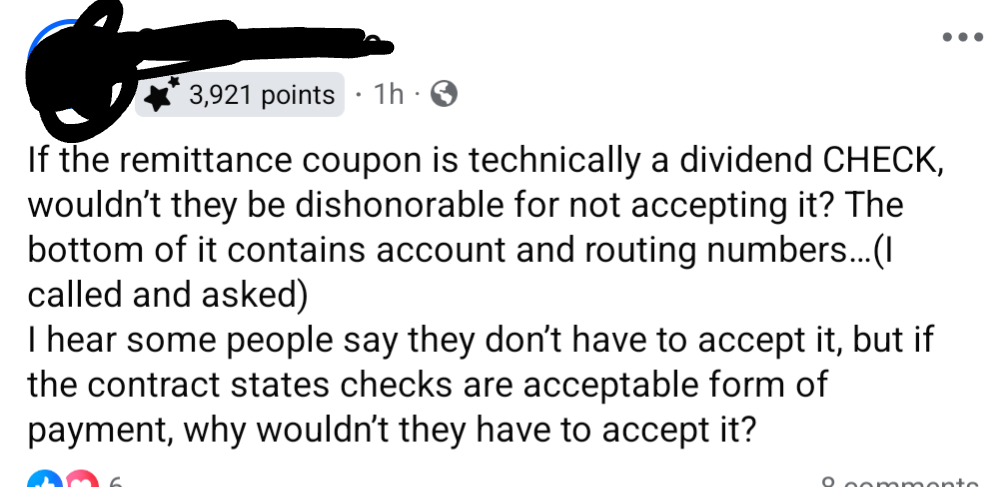this post was submitted on 03 Aug 2024
69 points (98.6% liked)
InsanePeopleFacebook
2611 readers
178 users here now
Screenshots of people being insane on Facebook. Please censor names/pics of end users in screenshots. Please follow the rules of lemmy.world
founded 1 year ago
MODERATORS
you are viewing a single comment's thread
view the rest of the comments
view the rest of the comments

...
https://www.sourcetech.com/blog/why-micr-line-required-checks
It's not required to have special ink. You can just print checks at home. You are posting something from a company that sells the special printers. Banks accept checks with regular ink (from cheap companies) all the time.
https://www.federalreserve.gov/paymentsystems/regcc-faq-check21.htm
Yeah, I know about that. I'm just saying that banks will still take the regular ink checks. They just type the numbers in manually when they deposit it. The check reader can't read non-magnetic ink.
They might, but they don't have to. If you bring in a boulder with a checked carved into it and expect them to cash it, they have every right to tell you no.
If that were indeed the case then how come so many banks now take online check deposits with just photos of checks? Just this afternoon I deposited a check via my banks smartphone app. I endorsed the check, took photos of both the front & back, and the app sent them to the bank. In a few days I’ll get an email confirmation that the check was deposited.
You'd have to ask the Federal Reserve. I don't make their rules.
Slacker